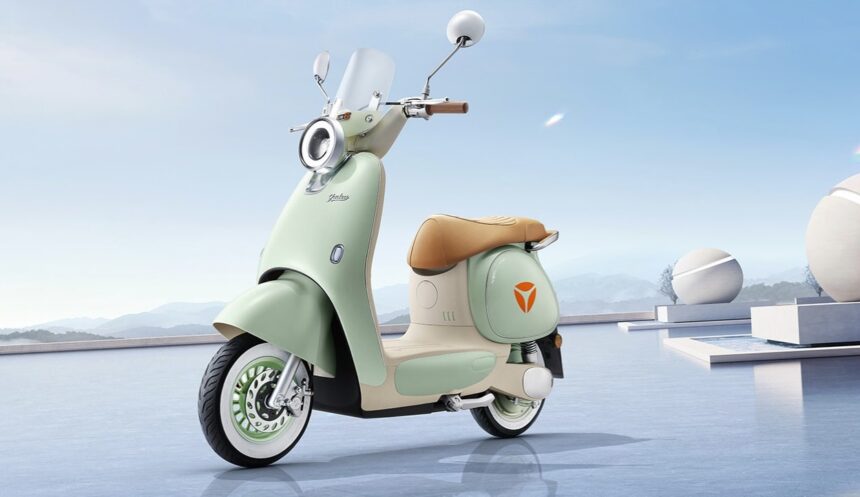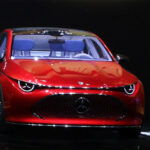Yadea, a renowned Chinese two-wheeler manufacturer, recently unveiled its first line of scooters powered by a revolutionary lithium-free sodium-ion battery pack. The company claims that these e-bikes can be charged up to 80% in just 15 minutes and support rapid 1.5 – 3C charging speeds.
At the Yadea Sodium Electric Vehicle conference held in Hangzhou, Yadea commenced pre-sales of four models featuring sodium-ion packs. The prices of these models range from 3,299 to 4,299 yuan (approximately 450 to 590 USD).
The four models include:
– Yadea Q1 sodium-ion: 3,299 yuan (450 USD)
– Yadea DE3 sodium-ion: 3,499 yuan (480 USD)
– Yadea G30 Lite sodium-ion: 3,699 yuan (500 USD)
– Guanneng Q50 sodium-ion: 4,299 yuan (590 USD) equipped with TCS intelligent traction control system.
These two-wheelers are equipped with the Yuji Sodium Battery, utilizing hard carbon material for its negative electrode. The battery cells boast an impressive energy density exceeding 145 Wh/kg and can be charged and discharged up to 1,500 times at normal temperatures, providing a lifespan of up to five years with regular use. Additionally, the sodium battery retains over 92% of its capacity even when discharged at -20°C.
Yadea also introduced the “Huayu JiNa Supercharging Ecosystem,” a comprehensive system designed around sodium-ion battery technology. The ecosystem includes widely distributed superchargers in core areas and a JiNa Smart Platform that monitors the status of supercharging stations and identifies problematic batteries.
The flagship model, Yadea Guanneng Q50 Sodium, features a Na+ battery with a nominal voltage of 48 V and a capacity of 24 Ah, offering a range of approximately 70 km. Powered by a TIFAR electric motor delivering 400 W power and a top speed of 25 km/h, this two-wheeler boasts dimensions of 1535/690/1100 mm and a rated load capacity of 75 kg.
In December, Yadea celebrated surpassing 100 million units in cumulative two-wheeler sales. Founded in 2001 and headquartered in Wuxi, Jiangsu Province, Yadea Technology Group continues to innovate in the electric vehicle industry.
Sodium-ion batteries are gaining traction for their safety benefits and ability to withstand cold temperatures. While they offer slower charge rates and lower energy density compared to lithium batteries, sodium-ion batteries are more cost-effective and environmentally friendly, making them ideal for two-wheelers, small city cars, and stationary energy storage solutions.
The Chinese market is witnessing increased interest in sodium battery production, with companies like BYD and CATL investing in sodium-ion battery technology. BYD recently initiated the construction of a 30 GWh sodium-ion battery plant in Xuzhou, while CATL announced plans to launch a second-generation sodium-ion battery in 2025.
With the rise of sodium-ion battery technology, Yadea’s foray into sodium-powered electric vehicles signals a promising shift towards sustainable and efficient mobility solutions in the industry.







